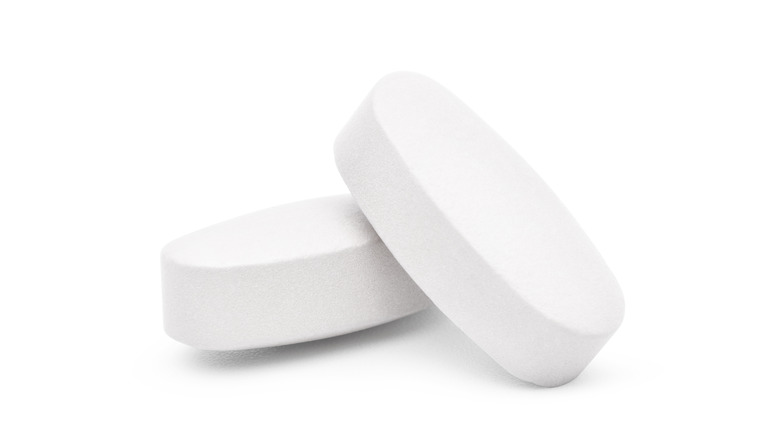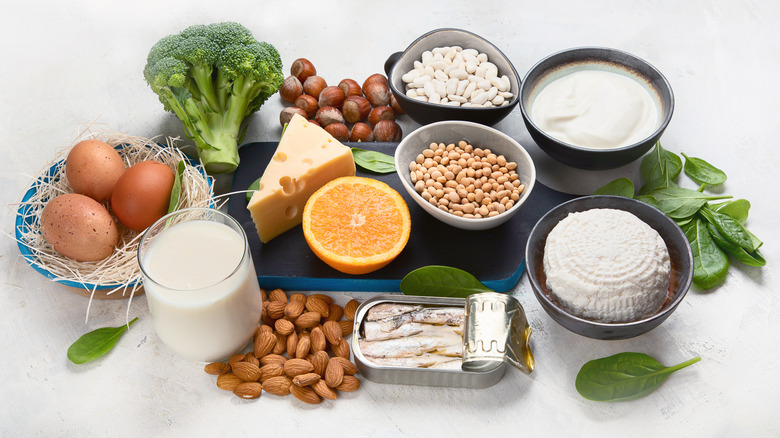You're Getting Too Much Calcium If This Happens To You
It's arguably easier to keep track of how many calories you're getting versus your vitamin and mineral consumption. That's why it's understandable if you went a little overboard last time you walked through the supplement aisle. We've been there as well! You likely became aware of all of the forgotten additions out there that suddenly feel necessary to add to your diet. Also, when it comes to shopping for our health, the guilt from overspending is noticeably more diluted in comparison to blowing our budget in other areas.
There is one supplement you should consider not putting in your basket, though, and that is calcium. According to Best Life, calcium is an important mineral the body needs for good bone health. And experts at the National Institute of Health note that "Inadequate calcium significantly contributes to the development of osteoporosis."
If it's so good for the body, then why not buy it in supplement form? Because calcium can already be found in many nutritious staples in our diets. If you consume too much of this important mineral, you may experience some troublesome side effects.
Too much calcium can cause both long and short term disruptions to your health
As it turns out, taking calcium supplements in an effort to promote good bone health may be increasing your risk of heart damage. In a study shown via Best Life, researchers looked over 10 years of medical tests, covering more than 2,700 patients, to find out what causes heart disease. The results showed that taking calcium in the form of supplements "may raise the risk of plaque buildup in arteries and heart damage." So unless your doctor has told you that you are in need of additional calcium through supplement form, there is no need to purchase that bottle.
Damage to the heart is a serious concern. But there are also daily disruptions to your life that might be more noticeable if you are getting too much calcium. According to the National Institutes of Health, a diet too rich in calcium can cause constipation, increased risk of developing kidney stones, and an inability to absorb iron and zinc.
Many of us are lucky enough to find enough calcium for our bodies needs through natural food sources. Healthline claims good sources of calcium include cheese, oily fish like sardines and salmon, dark leafy greens, seeds, and lentils. Now that you know you don't need the extra calcium via supplement form (unless specifically unstructured by your doctor) you can focus on splurging on other items that are good for your health.

